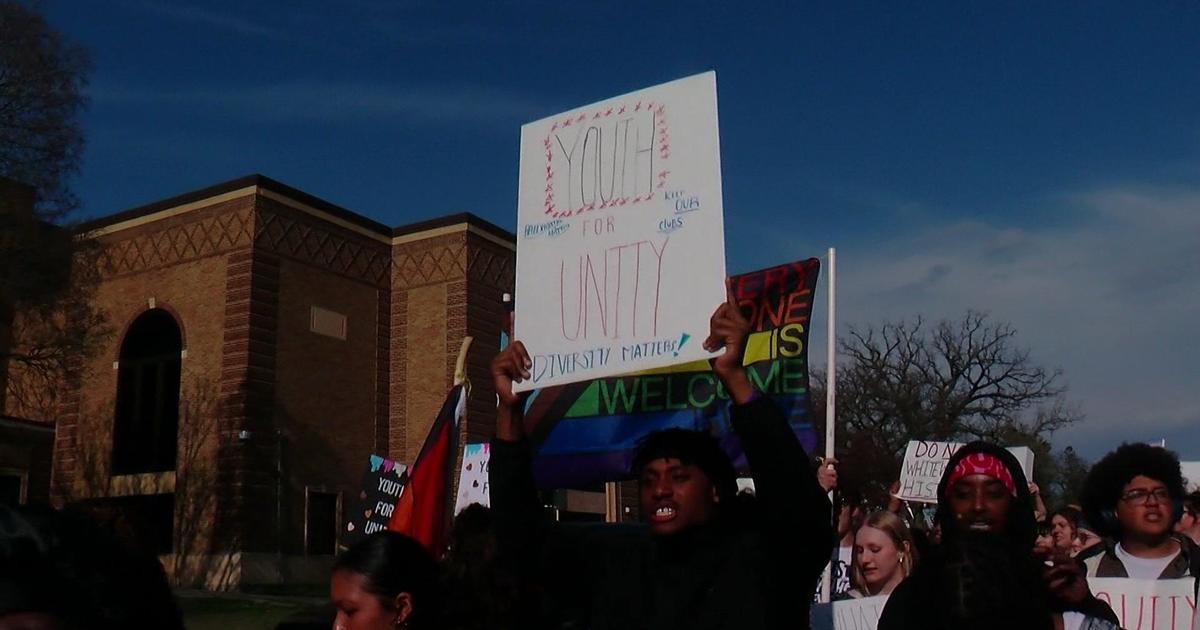Minn. Appeals Court Upholds Aiding Suicide Conviction
MINNEAPOLIS (AP) — The Minnesota Court of Appeals on Tuesday upheld the convictions of a former nurse who hunted for suicidal people in online chat rooms and encouraged two to kill themselves, saying his actions were not protected speech.
William Melchert-Dinkel, 49, of Faribault, was convicted in 2011 of two counts of aiding suicide. He acknowledged that what he did was morally wrong but argued that he merely exercised his right to free speech. The appeals court disagreed.
"We are confident that the Constitution does not immunize Melchert-Dinkel's morbid, predatory behavior simply because it appears in the form of written words," the justices' 31-page decision said.
Melchert-Dinkel's attorney, Terry Watkins, said that while his client's actions are unsavory, he still believes they are protected by the First Amendment. He plans to appeal to the state Supreme Court.
"We never saw this as a two inning game," he said. "These are still not cut and dry issues."
Court documents show Melchert-Dinkel was obsessed with suicide and searched online for depressed people. When he found them, he posed as a suicidal female nurse, feigned compassion and offered instructions on how they could kill themselves.
Melchert-Dinkel told police he did it for the "thrill of the chase." According to court documents, Melchert-Dinkel acknowledged participating in online chats about suicide with up to 20 people and entering into fake suicide pacts with about 10, five of whom he believed killed themselves.
He was convicted last year in the deaths of 32-year-old Mark Drybrough, of Coventry, England, who hanged himself in 2005; and 18-year-old Nadia Kajouji, of Brampton, Ontario, who jumped into a frozen river in 2008.
In the decision, written by Judge Kevin Ross, the Minnesota Court of Appeals found the state's assisted suicide statute does not violate the First Amendment because it prohibits speech that is "integral" to conduct the state seeks to prevent. The First Amendment doesn't protect all speech absolutely, the court said.
In arguing to overturn the conviction, Watkins said his client didn't talk anyone into suicide but instead offered emotional support to two people who had already decided to take their lives.
Prosecutors said he convinced his victims to do something they might not have done without him.
The appeals court agreed. The justices noted that both Drybrough and Kajouji died shortly after Melchert-Dinkel sent each of them a series of Internet messages "prodding them to kill themselves." They said Melchert-Dinkel clearly "advised and assisted" Drybrough by providing instructions, and he "encouraged" Kajouji by "fortifying her suicide decision through deceit."
"Put in its true light, Melchert-Dinkel hunted emotionally vulnerable persons — pitiable victims of obvious mental illness who stood precariously on the edge of death," the justices wrote. "Then, veiled behind a fictitious identity and deceitful words ... he pushed."
Melchert-Dinkel was sentenced to more than six years in prison, but he won't serve that if he follows terms of his parole, which include 360 days in jail. The jail time — which was on hold while his appeal was pending — was split so he'll serve 320 days upfront, then two-day stints on the anniversary of each victim's death for 10 years.
Watkins said he plans to file a request asking that the jail term again be put on hold pending an appeal to the higher court.
Assistant Rice County Attorney Benjamin Bejar said the decision is broad enough that it will likely affect another assisted-suicide case in Minnesota.
In that case, four members of a national right-to-die group called the Final Exit Network have been charged with assisting suicide in the 2007 death of a 57-year-old suburban Minneapolis woman. Officials with the group have also challenged the constitutionality of Minnesota's law.
Melchert-Dinkel's case came to the attention of Minnesota authorities in 2008, after a British citizen contacted St. Paul police over concerns about an "online predator" who was encouraging people to hang themselves. Authorities traced the chats to Melchert-Dinkel's home in southern Minnesota.
(© Copyright 2012 The Associated Press. All Rights Reserved. This material may not be published, broadcast, rewritten or redistributed.)



